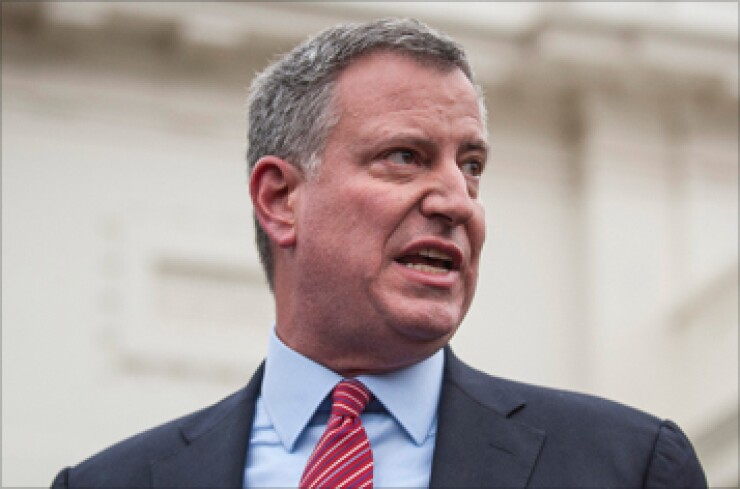
New York City's budget director has asked agency heads to identify "significant new savings" in time for Mayor Bill de Blasio's updated spring spending plan, he said Tuesday.
"Agencies will be required to find productivity and management improvements," Dean Fuleihan wrote department heads, according to his testimony before the City Council's finance committee.
Savings proposals must not result in reductions in direct services unless an alternative is available or the services are used, said Fuleihan, and must not rely on new fees, fines, concessions or layoffs. Fuleihan attached no dollar amount or savings percentage in his message to agency heads.
The specter of an economic downturn and cuts in state aid require conservative budgeting, said Fuleihan, formally the director of the Office of Management and Budget.
"We face some major challenges that didn't exist the last time I addressed the council," Fuleihan said as council members debated Mayor Bill de Blasio's $82.1 preliminary budget for fiscal 2017. "New Yorkers know the economy can turn on us suddenly and without warning. It happened after [Sept. 11] and it happened during the great recession of 2008.
"We need to manage risk and uncertainty and that's just what we are doing" said Fuleihan. He cited labor agreements with 95% of the workforce and a proposed budget that identifies $1.1 billion in savings to match that of the fiscal 2016 executive budget. "Our disciplined approach has received consistent praise and high ratings from out monitors."
Moody's Investors Service rates the city's general obligation bonds Aa2. Fitch Ratings and Standard & Poor's rate them AA.
Answering questions from the council finance committee Chairwoman Julissa Ferreras-Copeland, Fuleihan said that while reserve levels were the right level for now, the city would re-examine them as needed. "We need to protect those reserves," he said.
De Blasio will present an executive, or updated budget in late April. The 51-member council must approve the
Gov. Andrew Cuomo has proposed lifting the city's cap on Medicaid costs, which would force an additional $299 million on the city, and shifting $485 million from the state's annual subsidy for the City University of New York to the city's tab. According to Fuleihan, New York is the only municipality statewide that does not control its community college board.
New York State must approve its budget by March 31.
The watchdog Independent Budget Office, in a
IBO, citing its latest revenue and spending projections, expects the city to end fiscal 2016 with a $2.5 billion surplus, $216 million more than the administration's estimate. It projects the city will end 2017 with a $490 million surplus, with "relatively modest" gaps in the subsequent years of less than $2 billion per year.
Other variables, said IBO, include the desire by some City Council members to retain some programs that de Blasio wants to eliminate, including the School's Out New York City program at $28 million per year, and to maintain six-day library service.
IBO director Ronnie Lowenstein was scheduled to testify before the City Council Tuesday afternoon, as was city Comptroller Scott Stringer.
IBO said that despite de Blasio calling the budget "boring," it contains new initiatives including a $15 minimum wage for municipal employees and those of city contractors, and funding to backstop components of previously announced programs, such as ThriveNYC and Vision Zero which target mental health and traffic safety, respectively.





